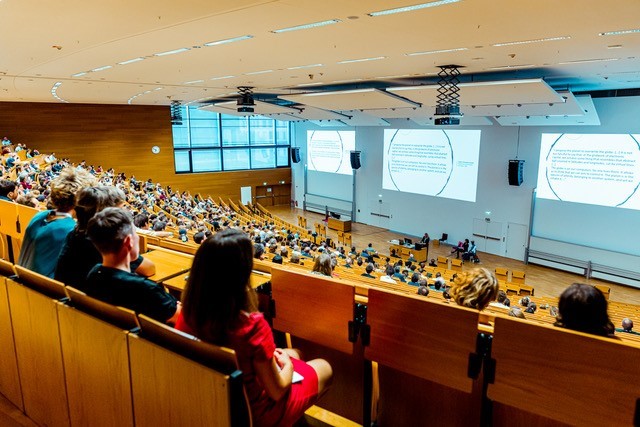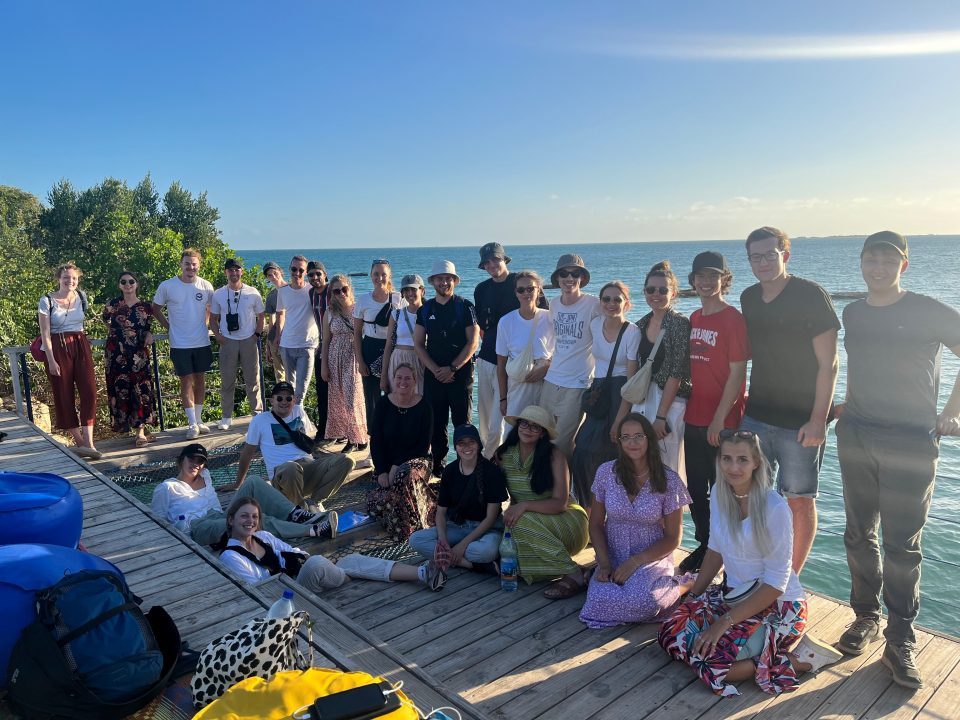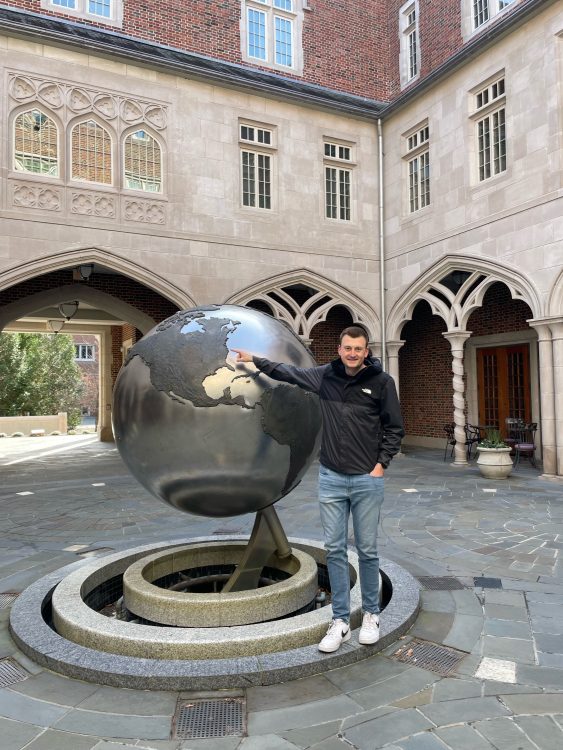Working group participated at German Congress of Geography in Frankfurt/Main

After a forced break due to Covid-19, the 62nd German Congress of Geography took place in Frankfurt/Main from 20th to the 23rd of September 2023 after a four-year break. Looking forward to a reunion with colleagues and professional exchange, our working group also took actively part in many sessions and presentations.
To start, Julia, together with Nadine Marquardt from the University of Bonn and Stefan Ouma from the University of Bayreuth, kicked off the congress with a keynote lecture titled “Planetary Futures: Navigating Life in Critical Times.” They reflected on the characteristics of planetary thought and its implications for human geographic scholarship. Furthermore, Julia participated in a panel discussing the book “Weltbildwechsel” by Antje Schlottmann and Jeannine Wintzer in which she emphasised the importance of engaging with the history of the discipline. She was also part of a session reviewing the recent publication Christian Steiner at al. on more-than-human geographies.

Other members of our group also made significant contributions during the conference. Sandra presented her work in three different sessions. In the session “Geography and Citizenship: Current and Historical Perspectives”, she talked about her research project on micronations. Under the title “Home-Made Citizenships: Mikronationen als Laboratorien alternativer Nationenbildung” (Micronations as Laboratories of Alternative Nation-Building), she explored how micronations (re)produce and (de)construct notions of citizenship and territoriality, challenging both nation-state norms and established views of macrosocieties. In the session Tourismus Macht Stadt, Sandra spoke together with Anton Escher about their work entitled “Tourismus macht Marrakech” (Tourism makes Marrakesh). She was also a panelist on the panel discussion on “Social Theory and Tourism”.
Furthermore, Malve in partnership with Tino Petzold and Till Straube both from Goethe University Frankfurt, organized a session on “Geographies of Air.” Within this session, Malve presented her own research on “Mosses and Humans in Coexistence: Examining Technological Mediations, Evidence-Based Calculations, and Discursive Negotiations of Urban Air Quality”. Additionally, Malve collaborated with Astrid and Yannick Ecker from the University of Halle in introducing the recently founded Working Group on Digital Geographies. This launch is intended to create a new network for scientific exchange on digital spaces, platforms, connections and geographical debates for all those who are interested.
Astrid also presented part of her work titled “Experiment Rural Development: Piloting Digital Technologies in Southern Tanzania” within the session “The Great Convergence? Agricultural Modernization and its Others in Global Perspective.” Given the contradictory logics between the testing of digital technologies and the development of Tanzanian agriculture through them, her presentation explored the ambivalent practices and impacts of digital pilot projects on rural Tanzanian.
Everjoy collaborated and co-organized a session with Nora Winsky (Uni Freiburg) and Dana Ghafoor-Zadeh (PU Freiburg) on the topic of “Participation in Qualitative Geography: Exploring Perspectives on Social Responsibility in Research Partnerships.” Everjoy also actively participated in this session by presenting and sharing her experiences on “Participatory Research Design and Implementation in a Disaster Context,” with a specific focus on her reflections from cyclone Idai.
Participating in the session focused on “Understanding and Enhancing Social Resilience to Flood Impacts,” Rupa contributed her insights by delivering a presentation titled “Understanding the Socio-Historical Complexity of Disasters through Serious Games: Virtual Insights into the 2018 Kerala Floods.” Through the integration of diverse research methodologies and advanced gaming technology, her presentation contends that serious games offer an engaging pathway to grasp the intricate dynamics of complex disaster experiences and make ethnographic insights more accessible in the realm of innovative disaster risk reduction strategies.
Lastly, Rupert contributed to the conference by presenting his research on “Designed Geographies? Perspectives on Design between Control and (Self-)Empowerment” within the session “(Ensuring) Survival: Critical Perspectives on the Political.” In his presentation, he took the omnipresence of design in public discourse as an opportunity to present burgeoning geographical perspectives that deal with the conceptual and political implications of design-driven future-making.
Overall, the conference provided a platform for collaborative work within and beyond our working group. We also had the opportunity to network and reconnect with fellow geographers, sharing insights and exploring the different facets within the evolving world of geography.


